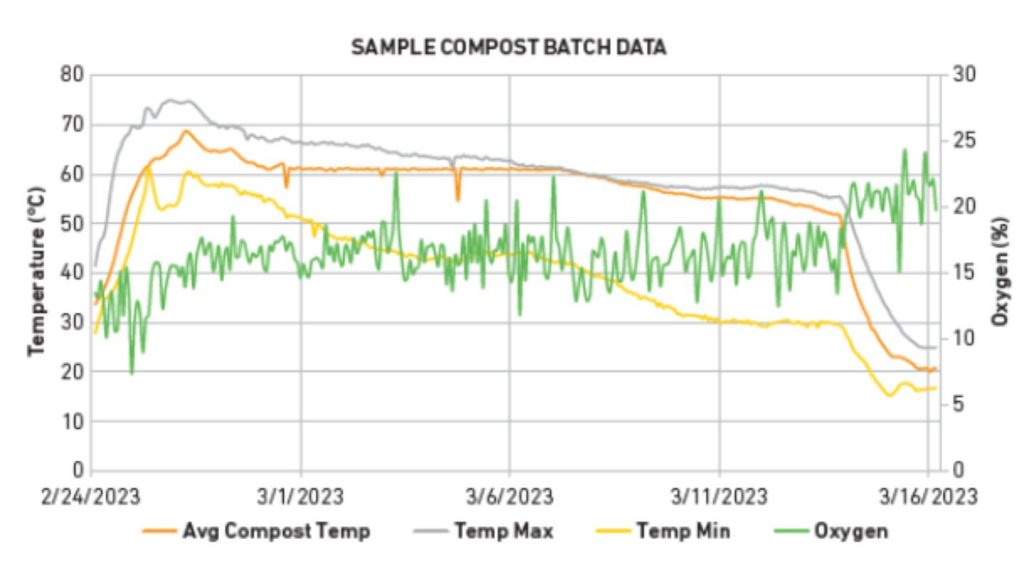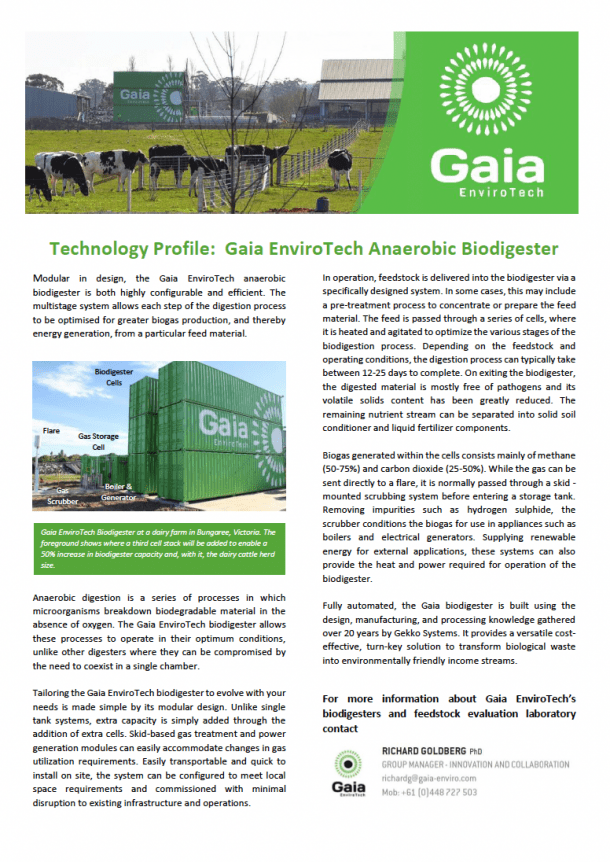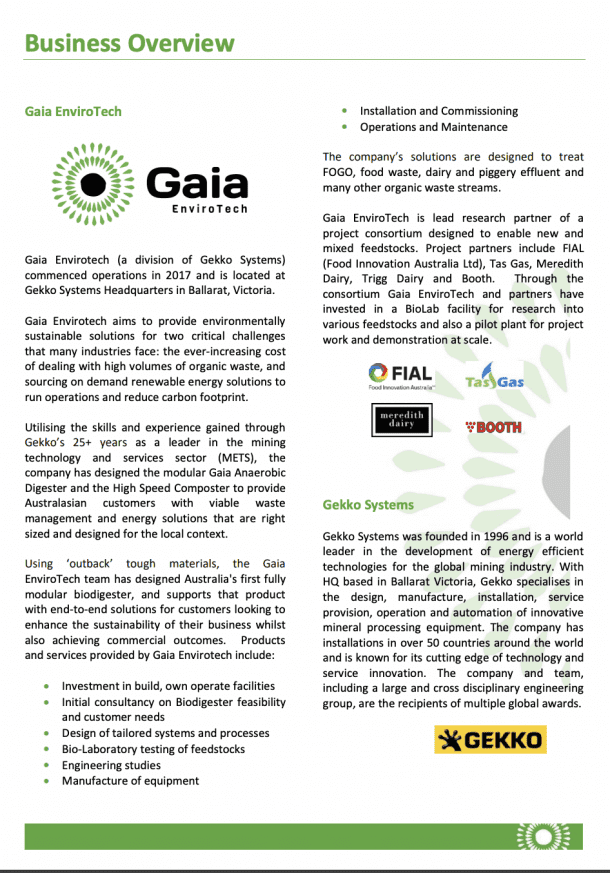With waste and recycling reforms by State Governments playing a key role in waste policy across Australia, many local councils are introducing kerbside Food Organics and Garden Organics (FOGO) services. Diverting organic waste from landfill and treating it in a sustainable and economical way is becoming increasingly critical to achieving key climate change (and other environmental) targets.
A recently released case study from Gaia EnviroTech outlines how Ararat Rural City Council (ARCC) has successfully addressed this challenge by using the Gaia services which utilise the company’s innovative proprietary Rapid Composting technology. This includes the delivery by Gaia of auditable operational and QA/QC data.

and duration processes achieve pasteurisation under Australian Compostable Standards AS4736/5810.
The ARCC is keen to adopt key circular economy principles in the treatment of the regions waste, and not rely on the transporting of waste long distances to a centralised facility. This successful outcome has built capacity in the region, and has ensured the benefits of the system are being utilised by the community.
With the increased urgency of meeting climate targets, companies such as Gaia EnviroTech are well-positioned to help other municipalities address the challenges of organic waste management, reduce greenhouse gas emissions, and contribute to a more sustainable future.
For further information, contact our team through our website or download the case study by filling in the form below.






Downloadthe Diary Effluent Case study
The system in this case study was installed in November 2018 as a 12-month research and development project to establish viability of an anaerobic digestion plant designed to convert dairy effluent to energy and minimise odour.
You have Successfully Subscribed!